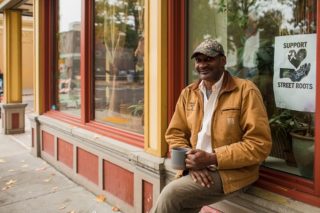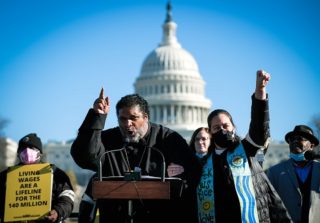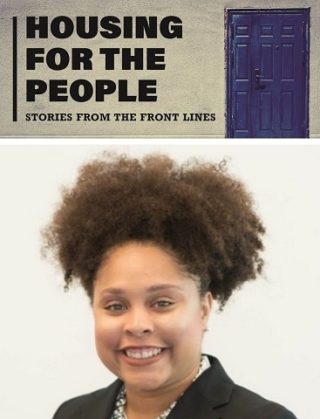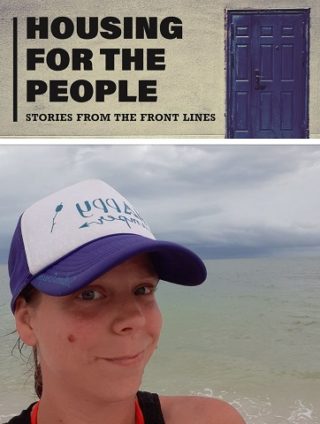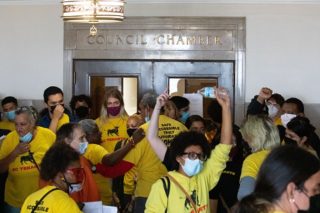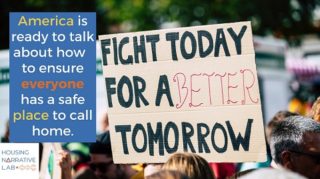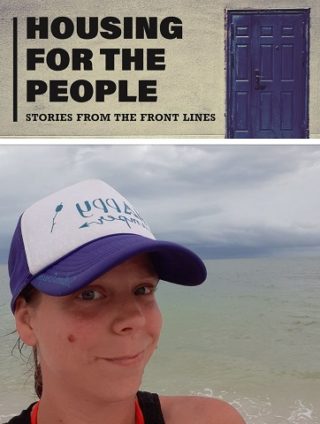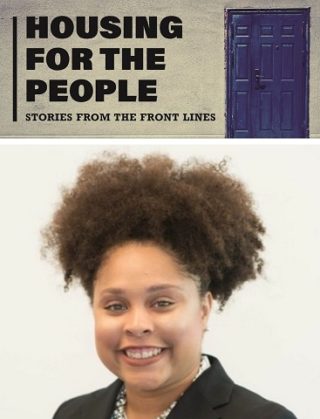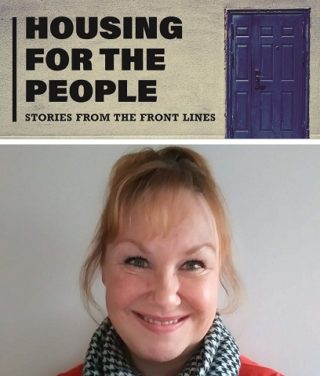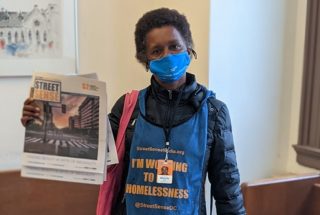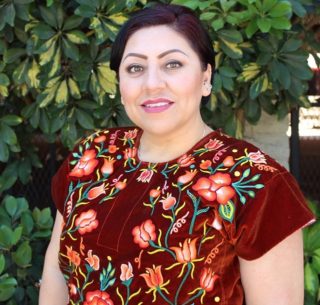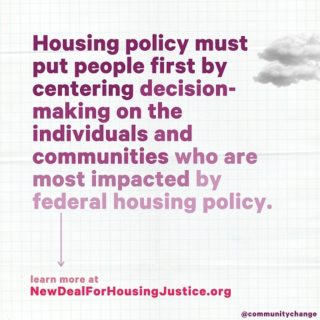Housing for the People: “Tennessee’s anti-homelessness law feels like someone ripping our collective hearts out”
Tennessee is Vicky Batcher’s home, and it is a place she is witnessing turn against people who don’t have shelter and must make their home on the street, a position she knows all too well from past experience. In the latest in INSP’s Housing for the People column, she writes about the jarring experience of seeing the place you live criminalize homeless people – people Vicky has a kinship with – as Tennessee will do with the passing of a new law.
Housing for the People: “I came back to life in a time of trouble”
Gary Barker, who sells Portland street paper Street Roots, writes for the latest in INSP’s Housing for the People – a column that allows those with lived experience of poverty, homelessness and insecure housing tell their story – writes about being “in a hell of my own doing”, but how with the pandemic making the world seem like world was falling apart, circumstances in Gary’s life suddenly made things start to come together. He writes about his work as an ambassador for Street Roots and leading on its MoJo scheme to get vendors into journalism, and how being in housing allows him to “find a way to get problems off my mind”.
Housing for the People: “Until I can make my dream happen…”
Brian Augustine, who sells Colorado street paper the Denver VOICE, writes for the latest in INSP’s Housing for the People series about how happenstance, and events outside his control, led to him losing the place he called home. Now, he counts the street paper as his home, and the people who come by his place of work as his family.
Housing for the People: How an affordable apartment changed my life
For Vicky Batcher, a regular face with and in Nashville street paper The Contributor, simply liking a Facebook page set her on a road toward a roof of her own over her head. For the latest in INSP’s ‘Housing for the People’ column, she writes about the rush of emotions that experiencing safety and security for the first time in years brought her.
Housing for the People: “We have to go beyond people just attaining housing”
For the latest instalment of INSP’s ‘Housing for the People’ column, Denver VOICE contributor Larmarques ‘Misha’ Smith writes about their journey from temporary to stable housing, their experience of shelters throughout the pandemic, and how ensuring housing is a right enjoyed by all should be done intersectionally with multiple goals in mind.
Reverend Barber and the revolutionary power of poor people
A Poor People’s March is descending on Washington, D.C. this summer. It has the potential to ignite a new progressive movement in the United States. INSP spoke to one of that movement’s leaders, pastor and activist the Reverend Dr. William Barber.
Housing for the People: “I was homeless on the road raising a child”
In this deeply personal piece for INSP’s ‘Housing for the People’ column, the writer tells a story of displacement and homelessness that spans continents in an attempt to escape the horror of domestic violence and to give her child the chance of a better life, even if it meant experiencing a period of transition living outside first.
Housing for the People: Addressing housing instability with equity in mind
Janiah Miller – an advocate experienced in providing support to political campaigns and offices, assisting in legislative and constituent support, and building intersectional coalitions within the community – writes for INSP’s latest ‘Housing for the People’ column about how the culminating moment of the American Dream – owning a home – is not equitably accessible to all.
Housing for the People: “Dear President Biden…”
Interweaving her own personal story with evidence of the current homelessness issue in Oregon, columnist Mandee Seeley drafts a heartfelt epistle to the US President about how to properly address the housing crisis. The letter is the latest instalment in INSP’s Housing for the People series.
KC Tenants – an activist group experiencing the harms of the affordable housing and eviction crisis first-hand offer – offers a model of possibility for fed up tenants worldwide
Kansas City, smack dab in the US Midwest in a Republican-led state, is often overlooked in the national conversation about the country’s housing crisis. KC Tenants – an organisation made up of members of Kansas City’s communities of renters – fights for cooperative housing, social housing, and a dignified response to the city’s housing, eviction, and homelessness crises. Ever since its formation in 2019, it’s made its demands for a better world known through carefully-researched policy proposals as well as direct actions matching the urgency of the issues they’re addressing. Its work offers a model of possibility for fed up tenants worldwide. INSP North America spoke to KC Tenants co-founder Diane Charity.
The Housing Narrative Lab is helping tell the story of housing insecurity and homelessness in America
The Housing Narrative Lab is a new communications and narrative research hub dedicated to sharing the stories of people facing housing insecurity and the systems that drive people into homelessness. Here, its director Marisol Bello writes about what’s wrong with American policies and how they negatively impact women who remain the vast majority of single parents in the US, some of whom have to choose- during a pandemic – between leaving young children at home alone or risking their jobs.
Housing for the People: “Like the air we breathe, housing is a basic human need”
Mandee Seeley spent three of her five years in Oregon without a home, living in the national forest with her husband and two children. For the latest instalment of INSP’s ‘Housing for the People’ column, she writes from her personal perspective about the basic requirement of all humans to have a home, and how the system should reflect that.
Housing for the People: Housing justice as a central voting issue
Janiah Miller – an advocate experienced in providing support to political campaigns and offices, assisting in legislative and constituent support, and building intersectional coalitions within the community – writes for INSP’s ‘Housing for the People’ column about how the affordable housing crisis remains at a historic nadir and how local organizations must continuously elevate affordable housing and homeownership as top priorities in their communities and bringing them to the attention of those with the power to affect change.
Housing for the People: “We got into our new apartment right before Christmas – it was the best gift!”
Mindy Woods and her son were forced to leave their dilapidated and mold infested home when it began to affect their health. Their experience thereafter is a story of lows – navigating the Kafkaesque public housing and benefits rigmarole, facing up to the “embarrassment” of having to tell her son’s teachers they were homeless – but also the high of finally getting a place to call home. A tireless housing and social justice advocate, Mindy shares her story here – as part of INSP’s new ‘Housing for the People’ column – to affect public perception and create policy change.
Poster campaign emphasises the importance of getting vaccinated against COVID-19
Social art and design lab Amplifier has made available to street papers posters which emphasise the importance of getting vaccinated against COVID-19 and encourage those who have yet to be immunised to do so. Coinciding with street papers reporting on the attitudes and experiences of marginalised communities when it comes to the vaccine, the posters aim to spread the message of community protection.
Thriving Peoples, Thriving Places: Poster campaign highlights the contributions of Indigenous women to global biodiversity
INSP has partnered with Nia Tero, a non-profit which works with Indigenous communities to promote their work and culture, and social art and design lab Amplifier to make available posters profiling a group of female Indigenous leaders from communities across the world. The campaign launches today to mark International Day of the World’s Indigenous Peoples.
Outgoing Street Roots editor Joanne Zuhl: “Seeing how far we’ve come is heartwarming. It’s a testament to the hundreds of vendors and volunteers, writers and readers who believed in our mission”
As she prepares to leave the Portland street paper after more than 18 years at the helm, Street Roots editor Joanne Zuhl talked to INSP about her lengthy stint leading one of the street paper network’s most established publications and where she leaves the paper after one of the most unpredictable years of her tenure.
“Better for vendors, as well as for customers”: Washington DC’s Street Sense goes weekly
Despite the uncertainty caused by pandemic lockdowns, Street Sense has made progress and is now going weekly. Located in the US capital, Street Sense Media will start publishing street papers every week starting today (14 April). This increase in frequency is also predicted to attract more vendors and increase their weekly earnings. Testimonials from vendors and INSP show excitement and anticipation for this growth in the street paper.
“Housing is a basic human need”: The US Government needs to address the housing crisis
Brook Fadley discusses the lack of safe and accessible housing infrastructure in her op-ed, the last in a series in collaboration with housing advocacy group Community Change. She writes that many people are vulnerable to homelessness due to the pandemic and the government needs to step up to solve it, urging the Biden Administration to pass the New Deal for Housing Justice.
Proper housing means having a home for your family
Idalia Rios discusses the definition of homelessness in this op-ed, the latest in a series in collaboration with housing advocacy group Community Change. To this immigrant mother, you can be homeless even if you have a roof over your head. She writes how proper housing, a foundation for a family, is a home. She urges the community to take action and to step into someone else’s shoes to provide more people with real homes.
Why centering lived experience is vital for the future of housing policy-making in the US
In the second of a series of columns about the Housing Playbook initiative to influence policy direction in the US around housing and homelessness by advocacy group Community Change, Zella Knight, an LA County housing commissioner, writes about how those with experience of the system are integral to changing it.
Triple Grand Slam winning tennis star Naomi Osaka: “The way I see it, I’m not half anything – I feel both Japanese and Haitian fully”
Tennis player Naomi Osaka rose to the summit of her sport by the age of 23. The three-time Grand Slam winner, who is Japanese-Haitian-American, drew particular attention last year when she wore masks emblazoned with the names of Black victims of police violence during the US Open, all while winning the tournament. In this wide-ranging interview during her preparations for the ongoing Australian Open, she spoke to INSP about her heritage, activism and using her platform for good.
Housing for the future: Andreanecia M. Morris on how the Housing Playbook Project will shape government’s responsibility to provide a home to those who need it
In this Q&A, housing advocate and expert Andreanecia M. Morris talks with Community Change communications fellow Darryl Lorenzo Wellington about the US housing crisis and recommendations for the new administration and Congress as part of the Housing Playbook Project.
Rep. Ayanna Pressley asks marginalized communities to remember “our greatness is older than our oppression”
The first black woman to represent the state of Massachusetts in the US Congress, Ayanna Pressley, talks to INSP about racism as a public health crisis, housing and homelessness, the intersection of racial and housing justice, and the hope people with marginalized identities can have, even as the November election approaches in a hurricane of violence, corruption and upheaval.
US Congresswoman Ilhan Omar: “We must be courageous in demands for investment in making our communities whole”
Since her election to the US House of Representatives, Ilhan Omar has made a name for herself as one of the key progressive voices in American politics while often facing xenophobic, racist, and sexist vitriol from the right. She spoke to INSP about the major issues facing modern America, from her work as a leading advocate for affordable housing reform to her commitment to a Green New Deal.
“At 15 years old, I was thrown from living barely above the poverty line to not having a home”: How the climate emergency exacerbates homelessness
In 2007, a flash flood ripped through Kathryn McKelvey’s home in a rural Oregon town, leaving it utterly destroyed and her family homeless. As fires now consume the western United States, McKelvey, a tireless homeless advocate, shows through her personal story how the climate crisis – and the increasing frequency and destructiveness of the natural disasters that come with it – is causing more and more people to fall into poverty and homelessness, with no safety net.
Housing is going to be an election issue — most Americans want the same thing
As Americans ready themselves for the November presidential election, housing may be more important than it has been in any recent election. In this op-ed for the INSP North America bureau, leaders from social action organisations – Community Change, Policy Link and Race Forward – lay out why this will be the case, and how housing is a pivot issue around a number of other key areas on voters’ minds, from racial justice to the economy.
US housing advocate Diane Yentel on housing in America: Where do we go from here?
Diane Yentel is the President and CEO of the National Low Income Housing Coalition, a membership organization dedicated solely to achieving socially just public policy that ensures people with the lowest incomes in the United States have affordable and decent homes. One of America’s leading voices on housing and homelessness, she spoke with INSP North America’s Israel Bayer about the housing crisis in America, what’s at stake in the upcoming Presidential election, the intersection of racial and climate justice with housing, and what readers can do about it.





